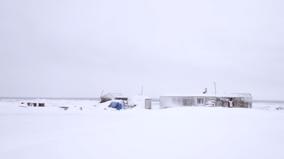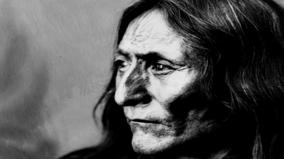Skip to content
Accessibility

New release
Coming
None
 Being Prepared
Being Prepared
2021
9 min
Leaving soon
As the global pandemic reaches into the Arctic Archipelago, Inuk filmmaker Carol Kunnuk documents how unfamiliar new protocols affect her family and community. Her vividly specific soundtrack juxtaposes snippets from local radio broadcasts, issuing health advisories in both Inuktitut and English, with the sweet sounds of children at play. A richly detailed and tender account of disruption and adjustment.

-
 The Curve2020 7 editionsThe Curve is the pulse of our nation, beating in its own time during this unprecedented time. Our creators, with their talent and insight, are bringing to life the voices of Canadians touched by COVID-19, both near and far. The Curve is an online destination where these experiences will be expressed in animation, documentary and digital storytelling formats.
The Curve2020 7 editionsThe Curve is the pulse of our nation, beating in its own time during this unprecedented time. Our creators, with their talent and insight, are bringing to life the voices of Canadians touched by COVID-19, both near and far. The Curve is an online destination where these experiences will be expressed in animation, documentary and digital storytelling formats.
As the global pandemic reaches into the Arctic Archipelago, Inuk filmmaker Carol Kunnuk documents how unfamiliar new protocols affect her family and community. Her vividly specific soundtrack juxtaposes snippets from local radio broadcasts, issuing health advisories in both Inuktitut and English, with the sweet sounds of children at play. A richly detailed and tender account of disruption and adjustment.
-
writerCarol Kunnuk
-
directorCarol Kunnuk
-
featuringLisa KunnukEvelyn KunnukDenise Kunnuk
-
editorCarol Kunnuk
-
camera operatorCarol KunnukMark Jr. Maliki
-
assistant editorMaia Iotzova
-
sound designChris Leon
-
sound recordistCarol KunnukMark Jr. Maliki
-
colouristPablo Perugorria
-
online editingDan Dietzel
-
sound mixChris Leon
-
studio operations managerDarin Clausen
-
studio administratorBree BeachDevon Supeene
-
production supervisorEsther Viragh
-
legal counselPeter Kallianiotis
-
marketing managerKelly Fox
-
translationCarol Kunnuk
-
production coordinatorJessica Smith
-
associate producerMaia Iotzova
-
producerAlicia Smith
-
executive producerDavid Christensen


















